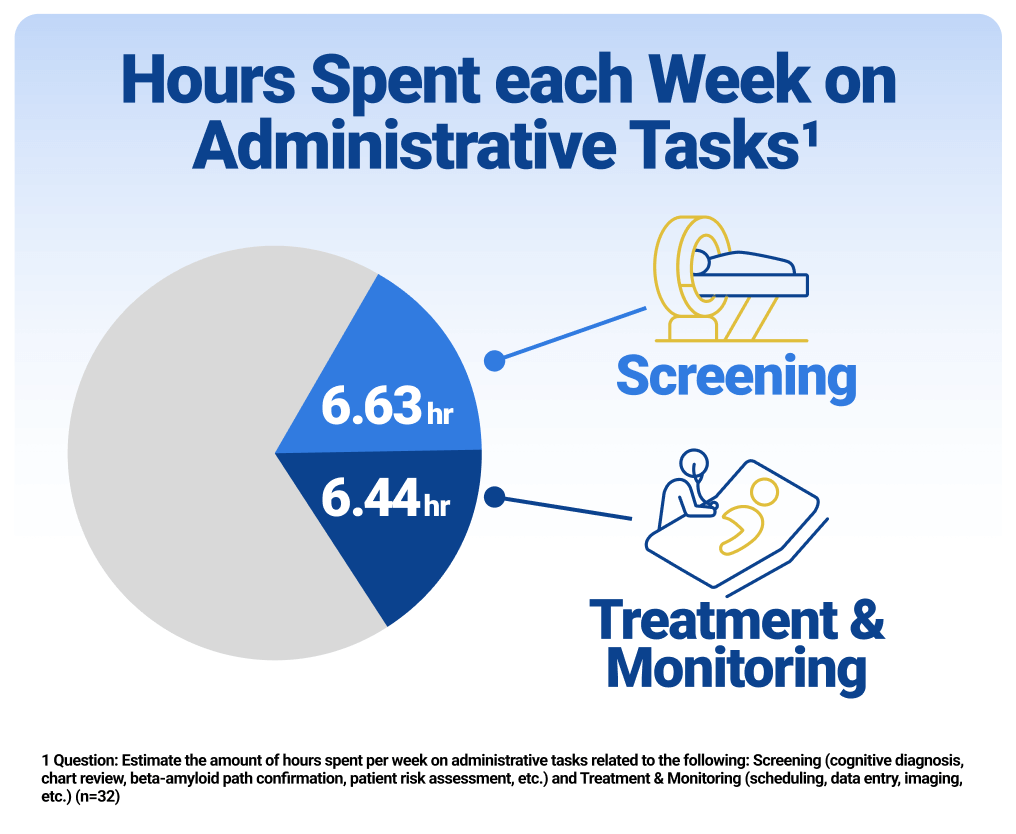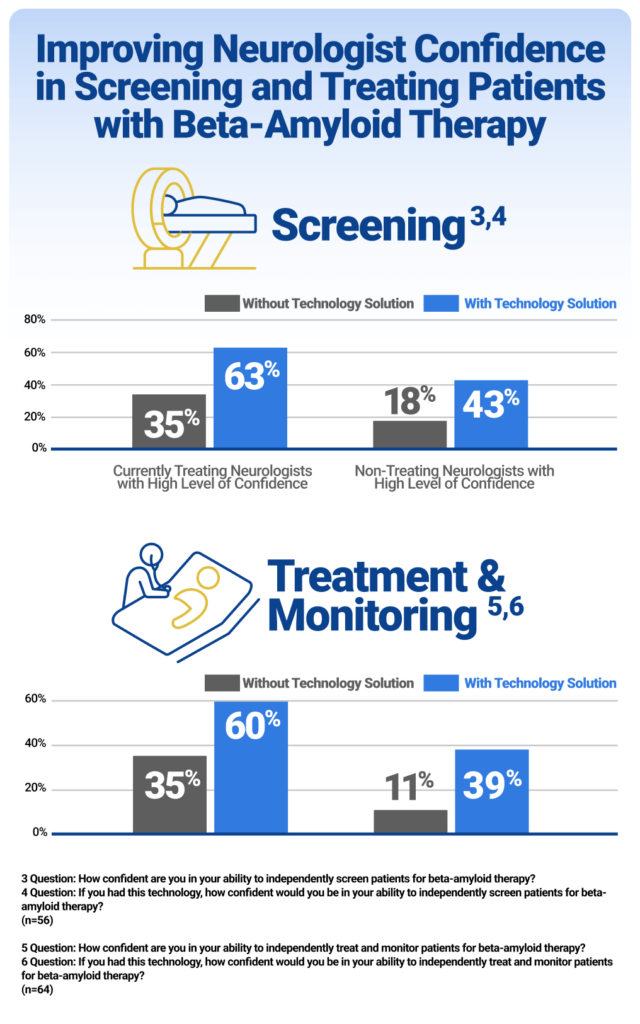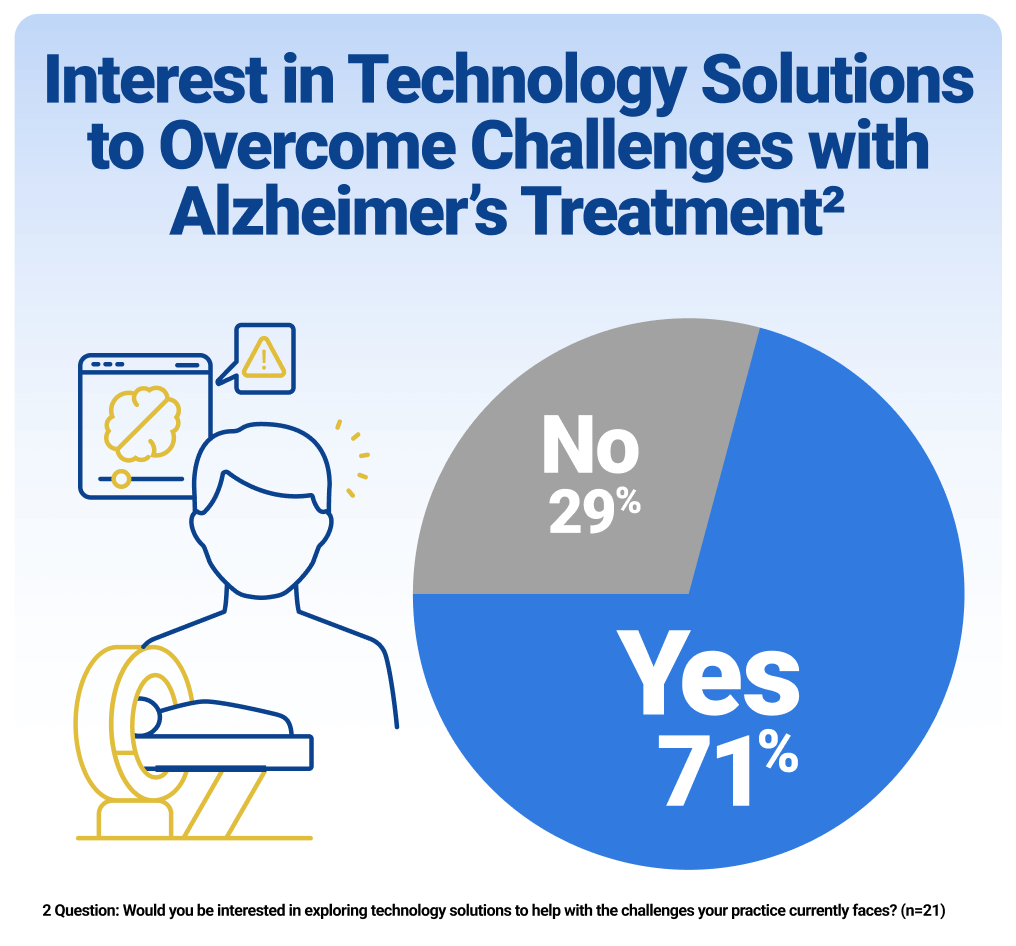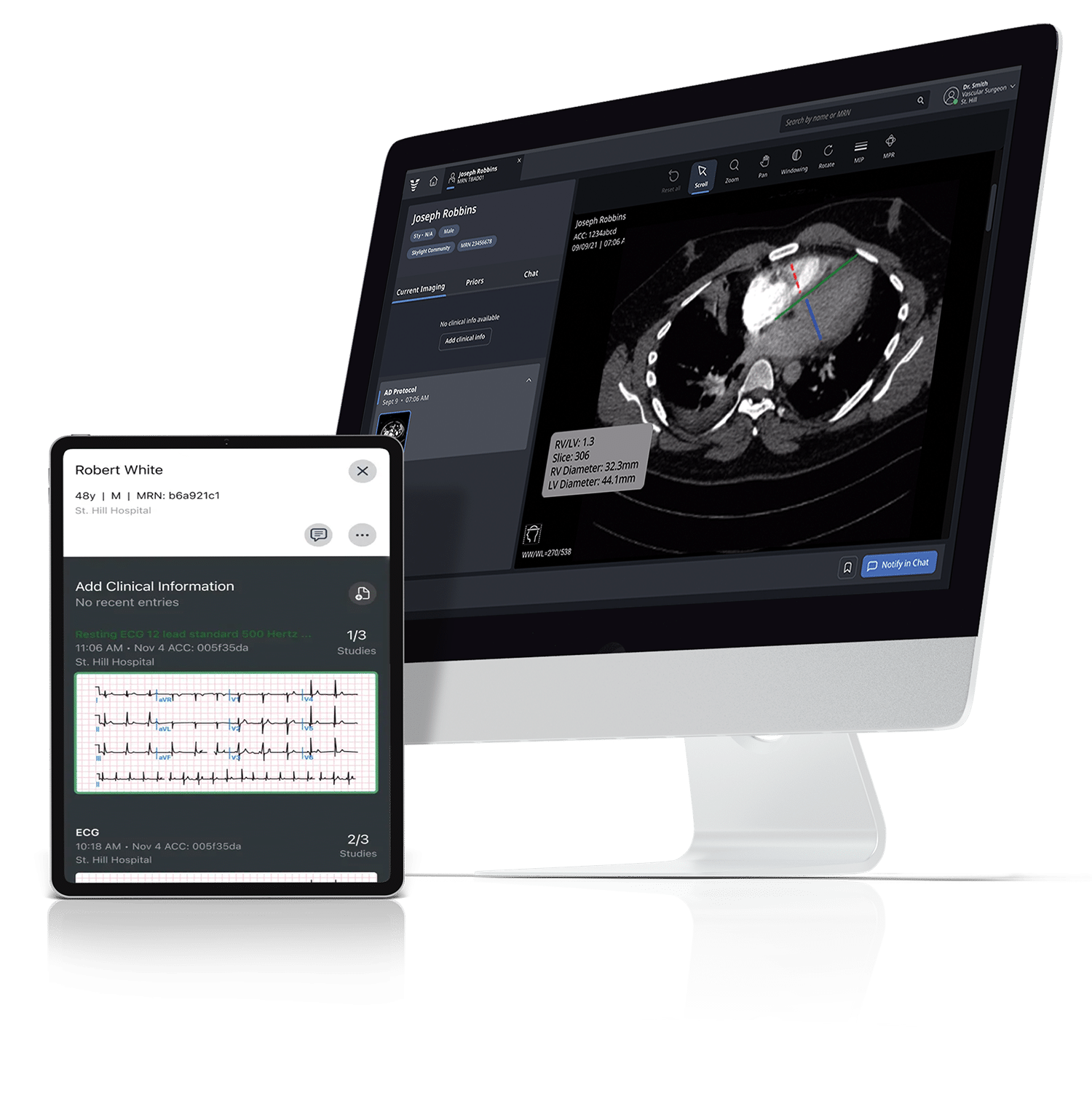Team Viz
Aug 13, 2024
Alzheimer’s disease affects approximately 8.4 million Americans with mild cognitive impairment (MCI) or mild dementia. There’s new hope for patients with Alzheimer’s, with a wave of disease-modifying therapies entering the market. However, Dementia specialists face significant challenges in diagnosing, qualifying, and preparing patients for treatments. These challenges are compounded by extensive monitoring requirements for patients started on therapy. The current medical system, which lacks streamlining and efficiency, needs enhancement to build a robust market for these groundbreaking therapies.
As the number of affected individuals rises, advanced technology solutions are crucial for improving Alzheimer’s treatment strategies. Based on Viz.ai’s recent survey of 60+ neurologists treating patients with Alzheimer’s, here’s how AI and workflow solutions can make a significant impact on neurology practices and patient care:
Increasing the Number of Neurologists Treating
Many neurologists have been hesitant to start treating patients with Alzheimer’s with disease-modifying therapies due to the administrative burden and lack of appropriate clinic staff and resources to manage these patients. Non-prescribing neurologists in our survey indicated that an AI workflow solution would significantly increase their confidence in both screening for and implementing new treatment pathways. Such a solution would reduce workload and simplify patient management, allowing more neurologists to confidently start treating Alzheimer’s patients with disease-modifying therapy.
Decreasing the Administrative Load
The survey found that 79% of neurologists treating Alzheimer’s patients with beta-amyloid therapies find the workup and monitoring process burdensome, spending over 13 hours per week – or roughly 33% of their work week – on administrative tasks (Exhibit 1). This is leading many of these physicians and their teams to rely on spreadsheets (25%) or paper lists (16%) to effectively manage their patients outside of electronic health records (EHRs), further complicating the workflow.
Exhibit 1: Neurologists treating Alzheimer’s patients spend an average of 13 hours each week on administrative tasks

Unsurprisingly, a significant proportion of neurologists treating Alzheimer’s patients (71%) are interested in exploring AI and technology solutions to address current challenges (Exhibit 2). Treating providers expressed interest in leveraging an advanced technology featuring automated dashboards, AI-driven insights, and streamlined workflows, which could cut down workup process time significantly, saving hours each week, allowing neurologists and care teams to focus more on patient care.
Exhibit 2: More than 70% of neurologists are interested in AI and technology solutions
Boosting Provider Confidence
The survey showed that introducing AI and workflow technology for Alzheimers could dramatically enhance provider confidence in patient screening and treatment. For currently treating neurologists, confidence in screening increased from 35% to 63%, and confidence in treatment and monitoring increased from 35% to 60%. For those not yet treating, confidence in screening jumped from 18% to 43%, and in treatment and monitoring from 11% to 39% (Exhibit 3). These results underscore the power of a targeted digital health solution to not only support current prescribers in navigating a complex and evolving pathway, but also to lower the barriers to entry for new prescribers by providing guideline-directed support.
Exhibit 3: Neurologist confidence in Screening and Treating Patients with Beta-Amyloid Therapy increases significantly by introducing an AI and workflow technology

Increasing Guideline Adherence
The need for supported guideline adherence is evident, with high interest in a technology-enabled guideline-directed checklist among both current disease-modifying therapy prescribers (84%) and non-prescribers (78%). As guidelines for new treatment pathways evolve, integrating a guideline-directed checklist within an automated workflow solution will better enable neurologists to adhere to the latest clinical guidelines effortlessly, leading to higher rates of patients completing the care pathway and receiving optimal treatment. Improving guideline adherence will directly contribute to better patient outcomes.
Reducing Time to Candidate Identification and Rule-Out
The current pre-treatment workup for each Alzheimer’s patient takes 7.5 weeks, with significant hours spent on data collection and chart review. 88% of treating providers indicated high interest in having an automated list of relevant imaging, lab results, and medical history to speed up chart review. By accelerating these processes and cutting down pre-treatment workup time, neurologists can make quicker, more informed decisions and dramatically speed up eligible patients’ access to care.
Improving Patient Treatment Fit and Conversion Rate
Alzheimer’s patients can greatly benefit from relevant treatments. Currently however, only about 38% of screened patients start on therapy due to challenges like burdensome workup processes, clinic capacity issues, and unfamiliarity with guidelines. An AI-powered care coordinate solution like Viz.ai can address these barriers, boosting the conversion rate by appropriately stratifying patients based on eligibility, ensuring more patients receive timely and appropriate care.
Implementing an advanced AI-powered workflow technology in neurology practices can significantly enhance the treatment of Alzheimer’s disease by increasing the number of treating providers, reducing administrative burdens, boosting provider confidence, ensuring guideline adherence, speeding up candidate identification, and improving patient treatment fit. These advancements are crucial for addressing the rising impact of Alzheimer’s and providing better care for millions of Americans.
Reach out to the Viz.ai team to explore more insights from the survey.
Viz is proud to partner with pharmaceutical and medical device companies to bring advanced AI workflow technology to HCPs across many specialties. Through these collaborations we enhance productivity and efficiency at the point of care, ultimately driving positive patient outcomes. Reach out to learn how a strategic partnership with Viz.ai could extend the potential of your treatment.

